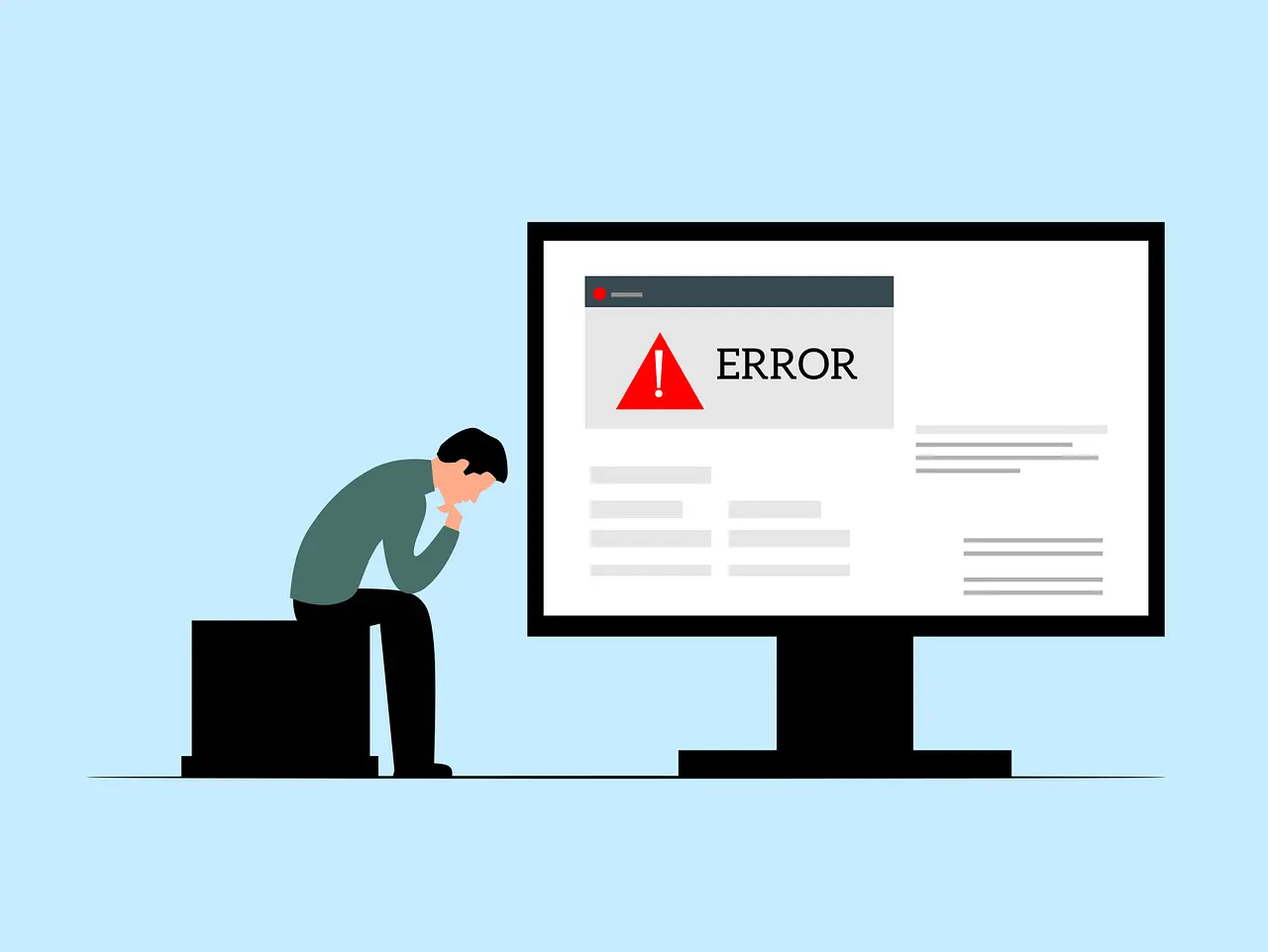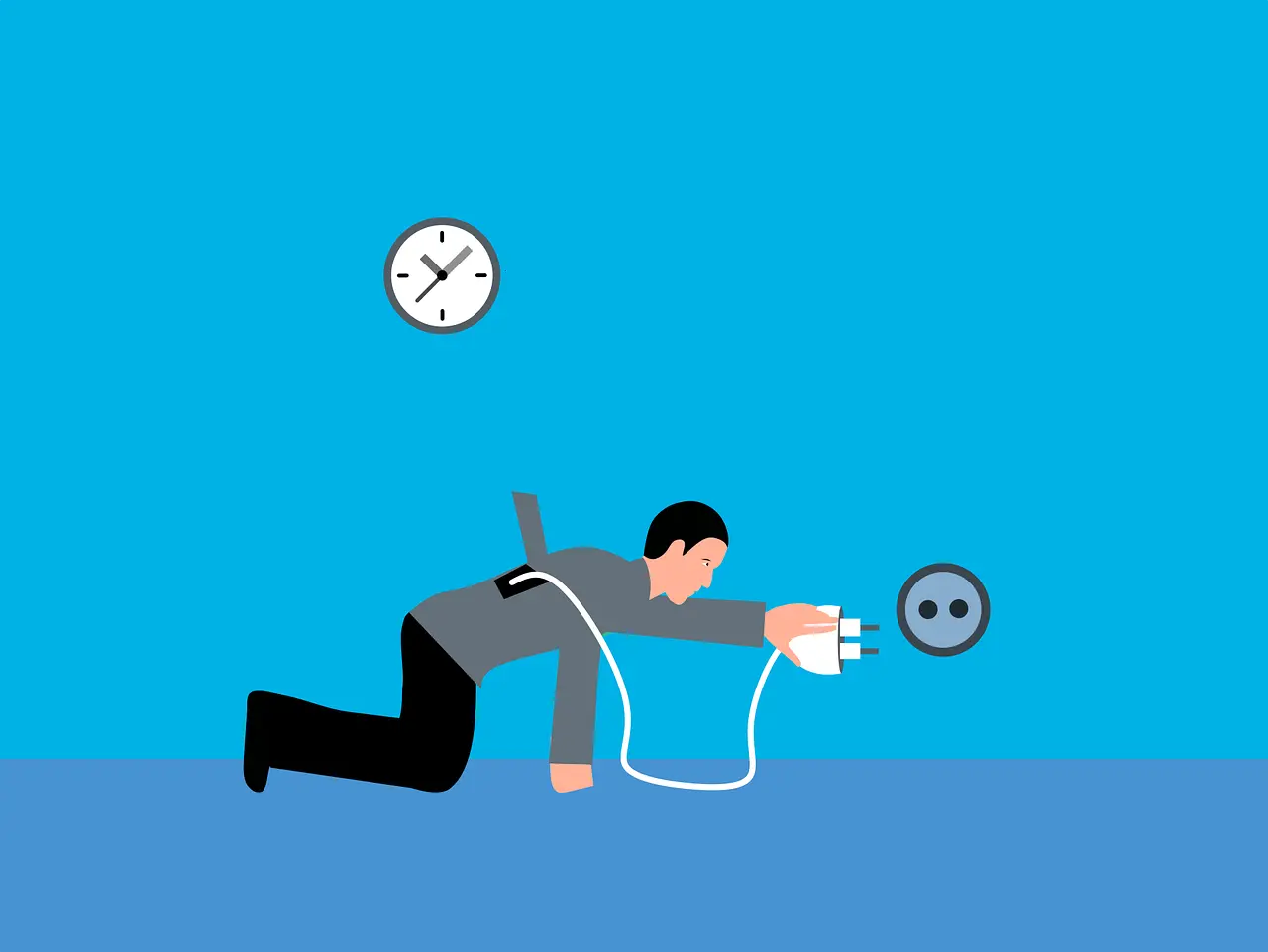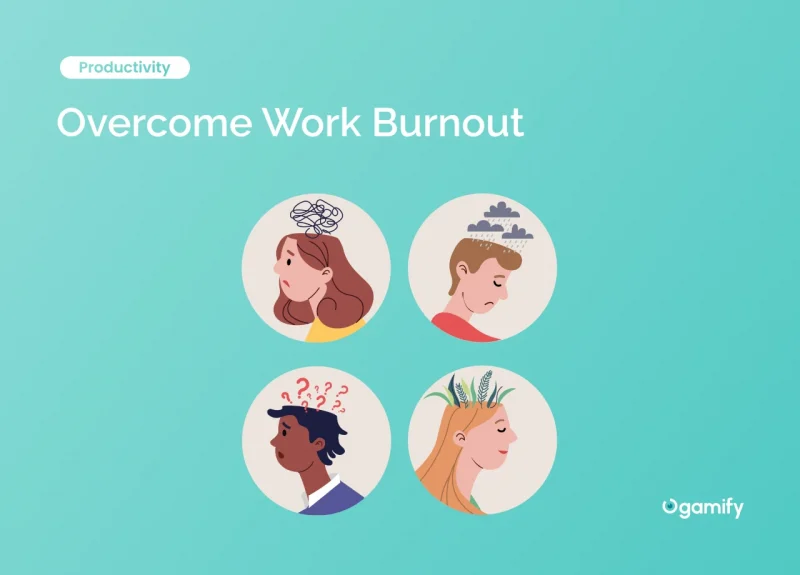Work burnout is a common problem that affects many people in different industries. It is a state of physical and emotional exhaustion that results from prolonged stress and overwork. Dealing with burnout can be tough, but strategies exist to overcome it.
This article will explore 5 ways to overcome work burnout; these suggestions can assist you in managing stress and maintaining motivation, whether you are a busy professional, an entrepreneur, or a student. From setting realistic objectives to practising mindfulness and self-compassion, we will present practical suggestions that you can use in your everyday routine.
What is work burnout?

Work burnout is an overwhelming condition characterized by deep emotional, corporeal, and cognitive weariness brought about by prolonged exposure to relentless pressures within the workplace. It is a prevalent predicament that permeates workers’ lives across diverse sectors and occupational roles. Burnout can precipitate an array of adverse consequences, encompassing reduced efficacy, discontentment with one’s job, and attrition.
Burnout symptoms can manifest in different ways, but they generally involve feelings of overwhelm, exhaustion, and a lack of control over one’s work. Physical symptoms of burnout such as headaches, fatigue, and sleep deprivation problems, may also be present. Burnout can also impact an individual’s mental health, leading to feelings of anxiety and depression.
Burnout definition varies across different organizations and experts, but it generally involves a state of long-term stress that results in emotional exhaustion, depersonalization, and a reduced sense of personal accomplishment. Workers burnout is often the result of an imbalance between job demands and available resources, including time, support, and autonomy.
Some common signs of work burnout include a lack of motivation, decreased productivity, and feelings of dissatisfaction with one’s job. Individuals fighting burnout at work may also exhibit warning signs such as increased absenteeism, reduced engagement, and decreased job performance.
What Causes Burnout in the Workplace?

Workplace burnout is pervasive; its detrimental effects can hinder productivity, well-being, and job satisfaction. While lack of control, recognition, and company culture are well-known contributors to burnout, exploring additional causes to understand this phenomenon is essential comprehensively.
By shedding light on these causes, employers can better address and manage burnout, ultimately fostering a healthier work environment.
Excessive Workload and Unreasonable Expectations
One of the prominent causes of burnout is an excessive workload coupled with unreasonable expectations. When employees are continually overwhelmed with tasks and pressured to meet unrealistic deadlines, their stress levels skyrocket.
This imbalance between workload and available resources can lead to emotional exhaustion, decreased motivation, and a sense of being trapped, eventually resulting in burnout with work. Therefore, implementing strategies to manage workloads effectively, such as prioritization and delegation, can help alleviate employee burnout symptoms.
Lack of Autonomy and Decision-Making Power
In addition to a lack of control, the absence of autonomy and decision-making power can significantly contribute to burn out causes. When employees are constantly micromanaged or stripped of the ability to make independent choices, they may feel disempowered and undervalued.
This lack of autonomy erodes job satisfaction and increases the likelihood of burn out at work. Encouraging a sense of ownership, granting decision-making authority, and fostering a collaborative work environment can empower employees and mitigate burnout risks.
Inadequate Support Systems

A frequently overlooked cause of burnout is inadequate support systems within the workplace. Employees facing challenges without access to proper resources or support structures are likelier to feel burned out at work.
This can manifest as a sense of isolation, lack of guidance, or insufficient training. Employers can create a more nurturing environment and promote workers’ well-being by establishing robust support systems, such as mentoring programs, employee assistance programs, and regular feedback sessions.
Work-Life Imbalance
Unbalanced work and personal life is a common problem that leads to burnout. Employees’ general well-being diminishes when they feel pressured to put work before their personal life. Chronic stress and emotional tiredness can be caused by long workdays, insufficient vacation time, and a lack of separation between work and personal life.
By supporting work-life balance through flexible scheduling, encouraging time off, and cultivating a workplace culture that emphasizes personal well-being, employers may assist to counteract this.
Emotional Demands and Occupational Hazards
Certain professions are more susceptible to burnout due to the inherent emotional demands and occupational hazards involved. For instance, healthcare professionals, emergency responders, and social workers are often exposed to traumatic events and high-stress situations.
Over time, this continuous exposure can lead to emotional exhaustion, compassion fatigue, and employee burnout. Recognizing these professions’ unique challenges and implementing specialized support systems and self-care practices is crucial for managing burnout in these contexts.
5 Ways How to Avoid Burnout

Creating a Supportive Workplace
A supportive workplace can help prevent burnout. Employers can create supportive workplace motivation by providing social support, lighting, and mentorship. Social support can come from colleagues who listen and offer emotional support.
Proper lighting can reduce eye strain and headaches caused by prolonged screen time. Mentorship can guide and encourage employees to develop their skills and career advancement.
Managing Workload and Time
Heavy workloads and unrealistic deadlines can lead to burnout. Employers can manage workload and time by setting realistic goals, providing resources, and allowing for work-life balance. Employees can prioritize tasks, delegate responsibilities, and avoid multitasking.
They can also take regular breaks, say no to additional responsibilities, and take vacation time to rest and recharge. Productivity tools can easily support this approach; plenty of those are available in the market.
Prioritizing Mental and Physical Health

Prioritizing mental and bodily health can help prevent burnout. Employees can engage in stress-reducing exercises such as yoga, meditation, or mindfulness practices.
They can also seek professional help if they experience physical work burnout symptoms such as exhaustion or depersonalization. Employers can provide resources such as employee assistance programs (EAPs) to support employees’ mental and physical health.
Making Goals and Plans for the Future
Making goals and plans for the future can help prevent burnout by providing a sense of purpose and progress.
Employees can set short-term and long-term goals, create action plans, and track progress in material or virtual planners. Employers can provide development opportunities and leadership roles to help employees advance in their careers.
Practising Mindfulness
Practising mindfulness can help prevent burnout by increasing awareness and reducing stress. Employees can practice mindfulness by being present in the moment, focusing on their breath, and observing their thoughts without judgment. They can also practice gratitude and positive thinking to increase their resilience and optimism.
In conclusion, avoiding burnout requires a proactive approach to managing workload, prioritizing mental and physical health, and creating a supportive workplace. By practicing mindfulness, setting goals, and taking regular breaks, employees can improve their productivity and job satisfaction while avoiding burnout.
How can I deal with and heal from burnout in order to become productive again?

Overcoming burnout at work and finding effective solutions for burnout is a critical step toward treating and recovering from this debilitating condition. So can you recover from burnout and experience a significant healing process? Absolutely. By addressing the root causes and implementing strategies for burnout treatment, individuals can recover from severe burnout, ultimately restoring their productivity and well-being.
Here are some key tips for dealing with burnout and facilitating the healing process:
Identify the underlying causes
Understanding the causes of burnout is essential. In order to avoid burnout, be careful to assess your work environment, workload, and personal expectations. Recognize the symptoms such as persistent weariness, decreased motivation, and a sense of disconnection from your job. Take the required actions to resolve these issues and avoid burnout. This could entail establishing limits, looking for assistance, and engaging in self-care.
You may maintain a healthy work-life balance and avert the negative impacts of burnout by being proactive and aware of the warning symptoms. Always put your health first if you want to be successful and happy in both your personal and professional life.
Seek support and professional guidance
Reach out to supportive colleagues, friends, or family members who can lend a listening ear and offer guidance. Consider seeking professional help from therapists or counsellors experienced in treating burnout and overcoming burnout and depression. Their expertise can provide valuable insights and strategies for recovery.
Implement self-care practices

To heal burnout, it is vital to prioritize self-care activities. Dedicate time to engaging in activities that bring joy and relaxation, like pursuing hobbies, exercising, or immersing yourself in nature. Taking care of your physical well-being is also crucial for burnout recovery. Ensure you get sufficient sleep, maintain a nutritious diet, and exercise regularly to heal burnout.
By actively participating in these self-care practices, you can effectively heal burnout and restore your energy and enthusiasm. Remember, self-care is the key to achieving a healthier and more balanced lifestyle.
Set boundaries
Creating well-defined boundaries between work and personal life is crucial. Practice saying no when needed and delegating tasks to lighten your workload. By setting limits, you can prevent work from encroaching on your personal time and preserve your energy.
Additionally, it is essential to communicate your needs and concerns with supervisors and colleagues, promoting a supportive environment that prioritizes well-being and productivity. Expressing your boundaries and seeking assistance when necessary can alleviate stress and maintain a healthier work-life balance.
Practice mindfulness and stress reduction techniques:
Incorporate mindfulness meditation and stress reduction techniques into your daily routine. These practices can help calm the mind, enhance focus, and cultivate self-awareness. By incorporating these strategies into your routine, you can gradually recover from burnout and regain a sense of balance.
Engage in professional development
Seek opportunities for professional growth and development. This can include attending workshops, conferences, or training sessions relevant to your field. Engaging in activities that promote learning and skill-building can reignite your passion for your work and enhance overall job satisfaction. you can easily motivate yourself to do so by using gamification mechanisms and apps
Remember, burnout recovery is a process that requires patience and perseverance. By proactively addressing and implementing these tips for dealing with burnout, you can navigate the path toward healing and reclaiming your productivity and well-being. Dedication and self-care make it possible to overcome burnout and restore a sense of balance in your professional life.
Conclusion
In conclusion, job burnout psychology seriously affects workers’ productivity and well-being. It can lead to exhaustion, lack of motivation, and even physical and mental health problems. However, there are ways to beat burnout and heal from it.
One of the most effective ways to overcome burnout is to take breaks and prioritize self-care. This can include activities such as exercise, meditation, or spending time with loved ones. Additionally, workers can try to set boundaries and limit their workload to prevent burnout from happening in the first place.
Employers can also play a role in preventing burnout by creating an optimistic work environment and providing resources for employees to manage stress. This can include offering flexible schedules, providing mental health support, and encouraging breaks and time off.
Overall, both workers and employers need to recognize the signs of burnout and take proactive steps to prevent and heal from it. By prioritizing self-care and creating a positive work environment, workers can improve their productivity and well-being, while employers can benefit from a more engaged and motivated workforce.
FAQ
Can burnout be overcome?
Yes, burnout can be overcome. By addressing the root causes of burnout, implementing strategies for recovery, and prioritizing self-care, individuals can recover from severe burnout and restore their productivity and well-being. However, burnout recovery is a process that requires patience and perseverance.
Does burnout ever get better?
Yes, burnout can get better with proper management and self-care. By addressing the underlying causes of burnout, implementing strategies for recovery, and prioritizing self-care activities, individuals can gradually heal and regain their energy and enthusiasm. It is important to be patient with the recovery process and seek support from professionals or trusted individuals who can provide guidance and assistance.
Should I quit after burnout?
The decision to quit after experiencing burnout is a personal one and depends on various factors. It is advisable first to assess the root causes of burnout and explore potential solutions to address those causes. If you find that the work environment or job demands consistently lead to burnout and negatively impact your well-being, it may be worth considering a change. However, before making any decisions, it can be beneficial to seek support from professionals, discuss your options with trusted individuals, and explore strategies to heal from burnout and regain productivity.
Why is it important to address burnout?
It is important to address burnout because it negatively impacts individuals’ productivity, well-being, and overall job satisfaction. Burnout can lead to physical and mental health problems, decreased motivation, and increased absenteeism. By addressing burnout, individuals can improve their quality of life, maintain a healthier work-life balance, and contribute to a more positive and productive work environment.


